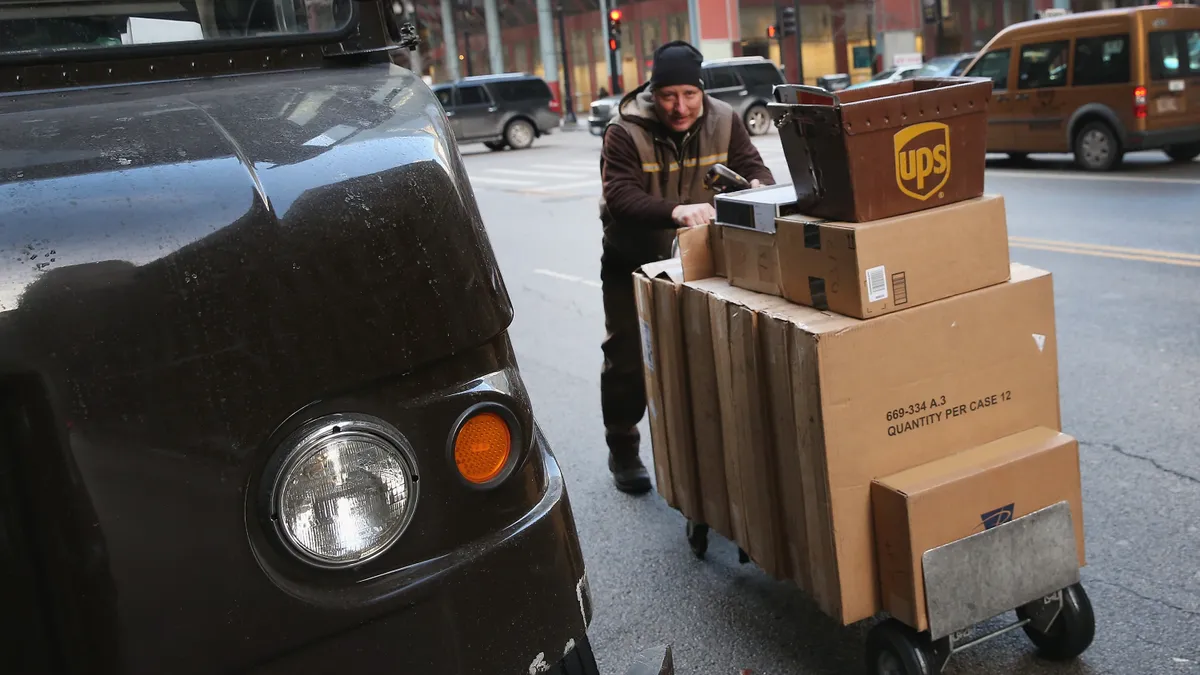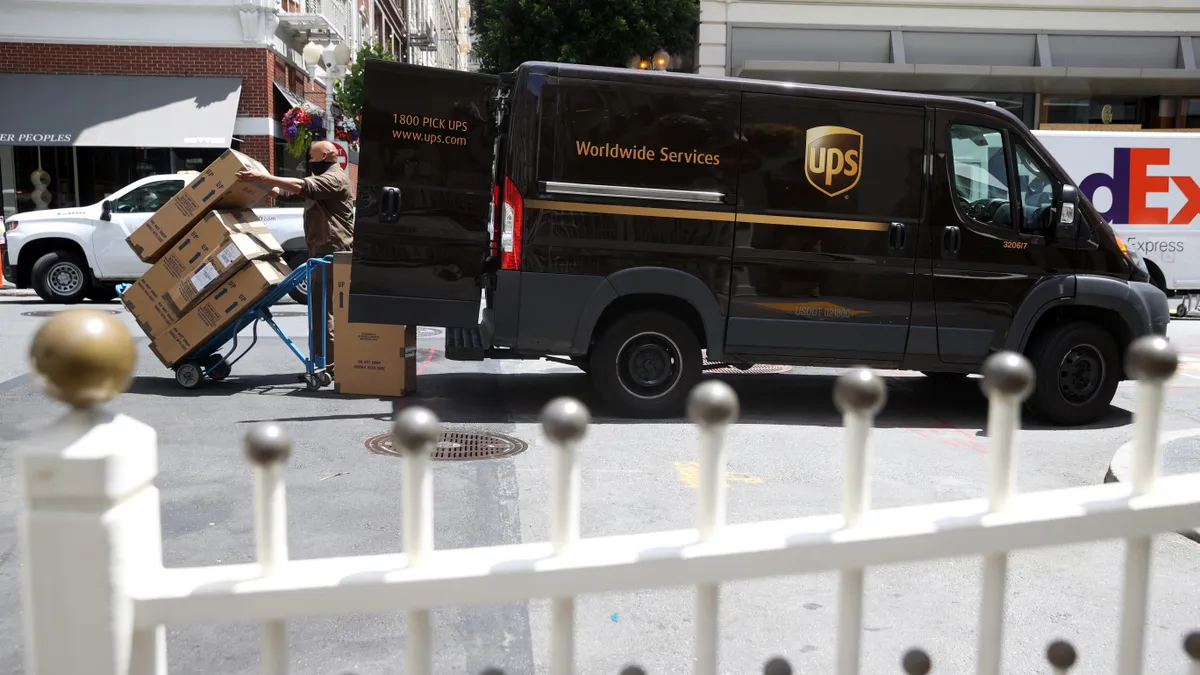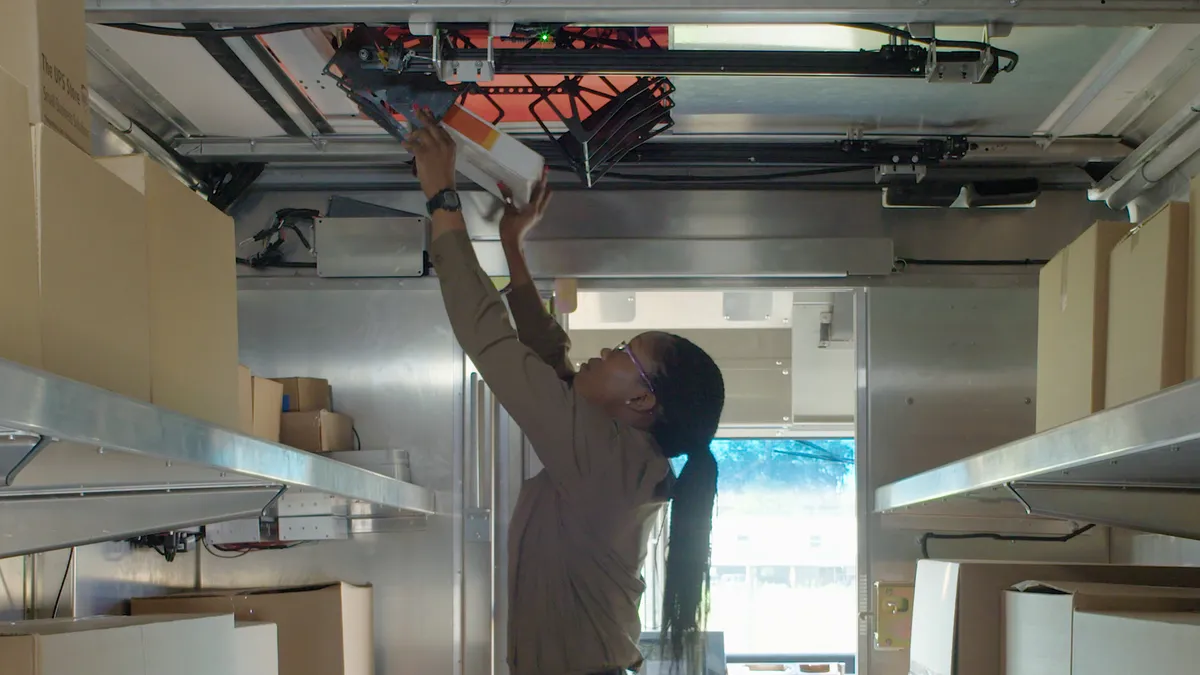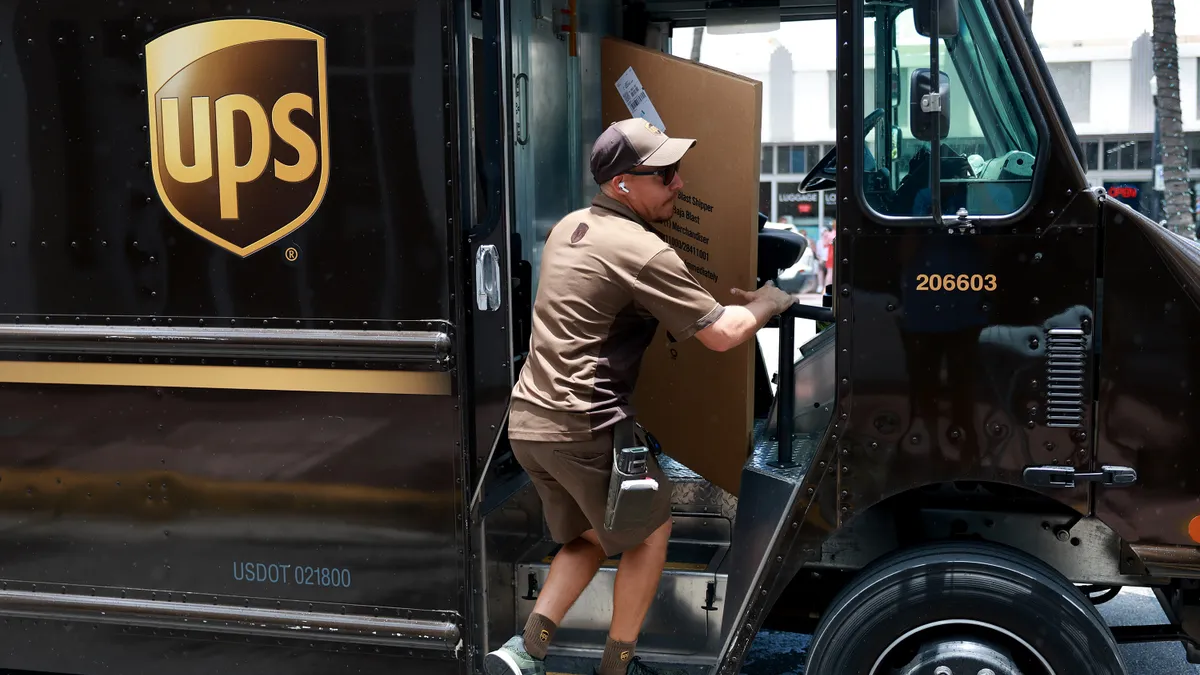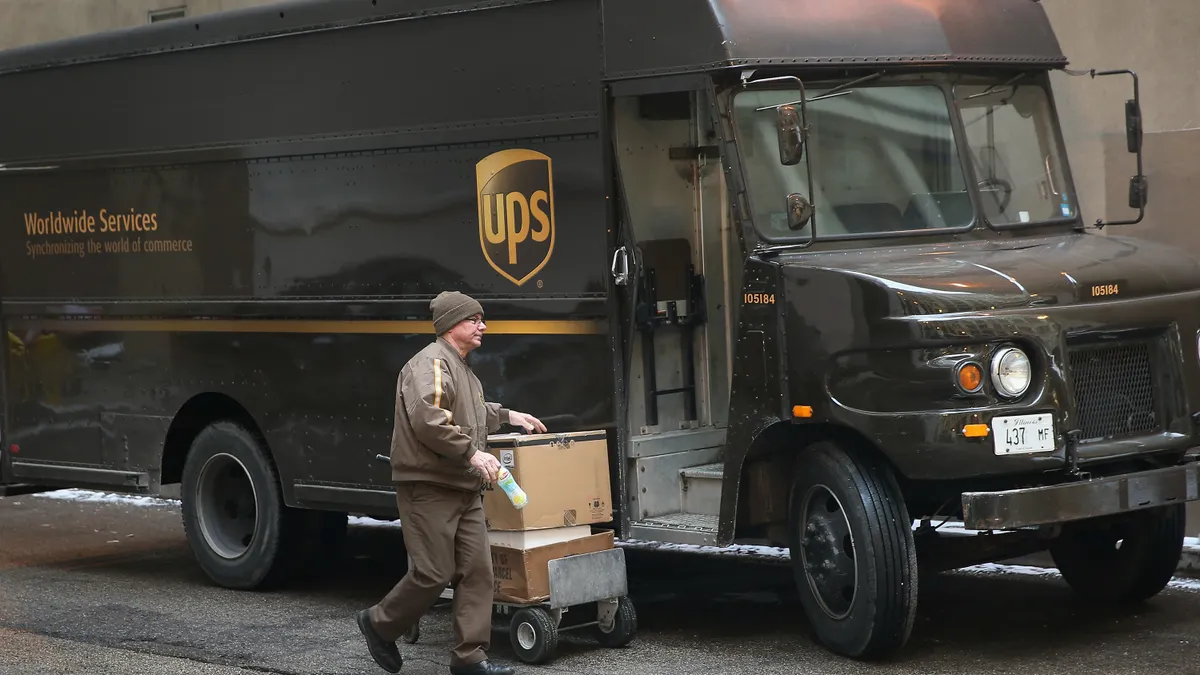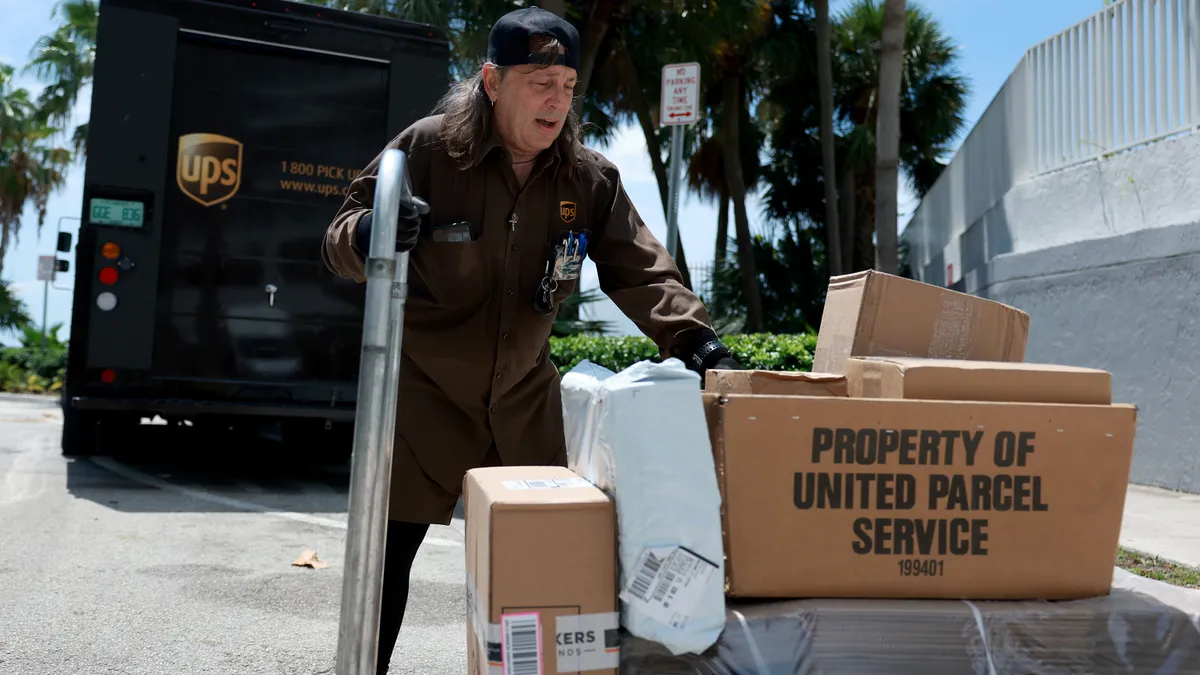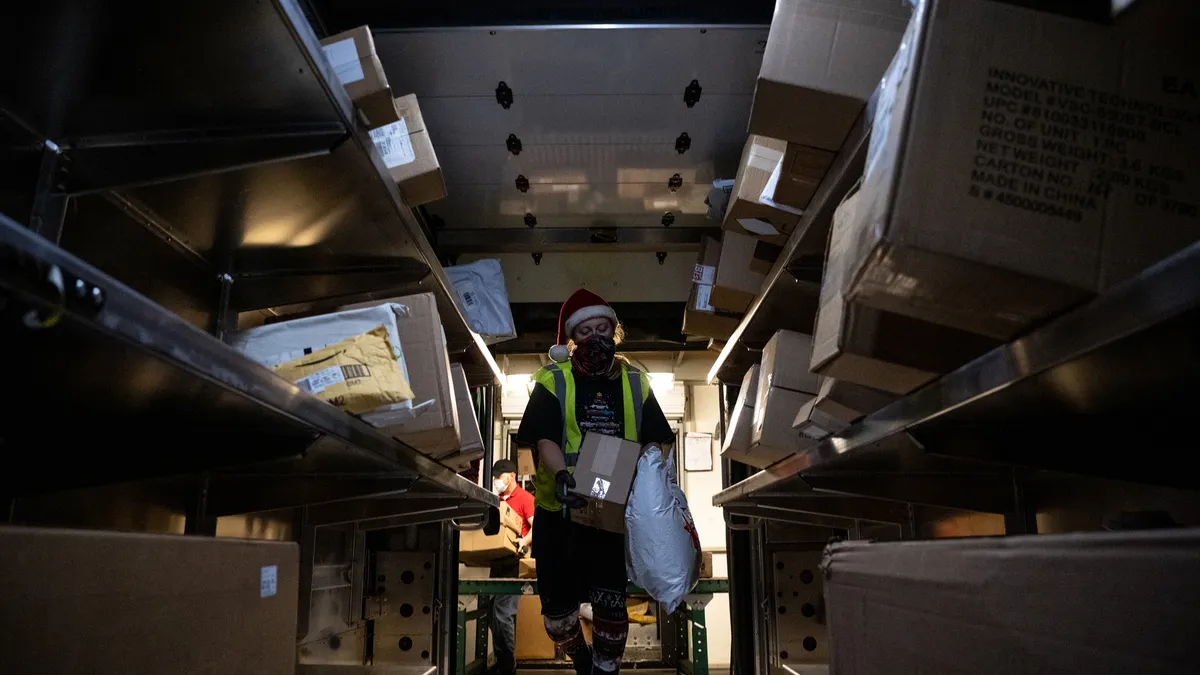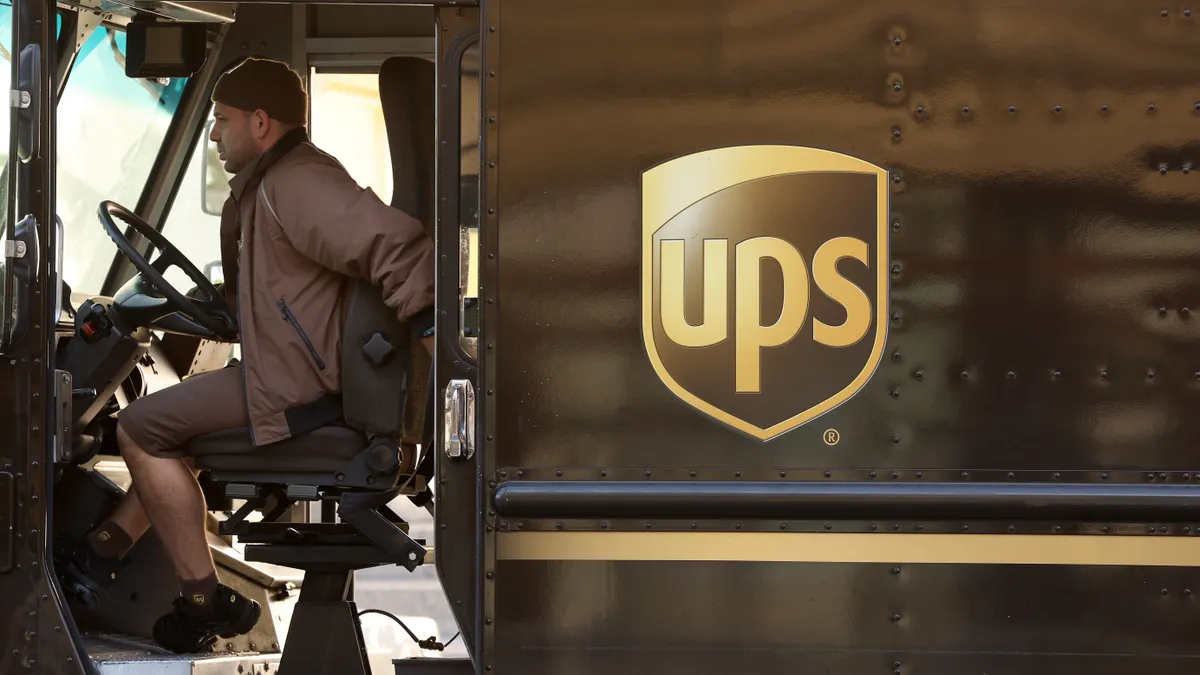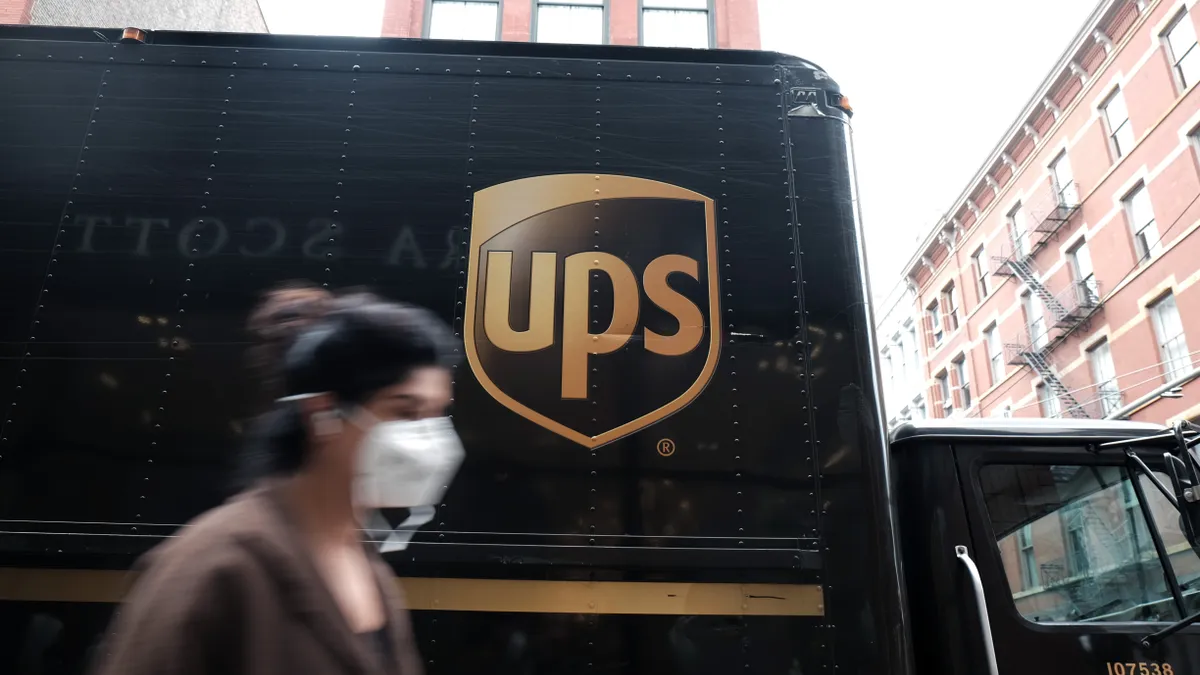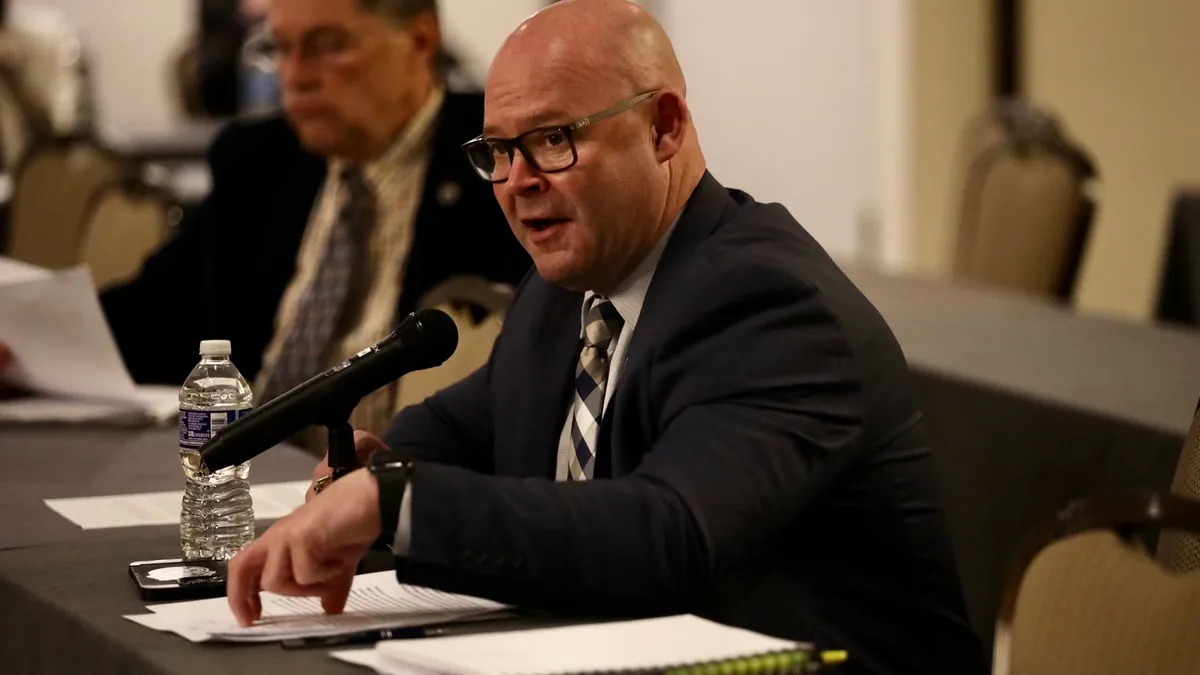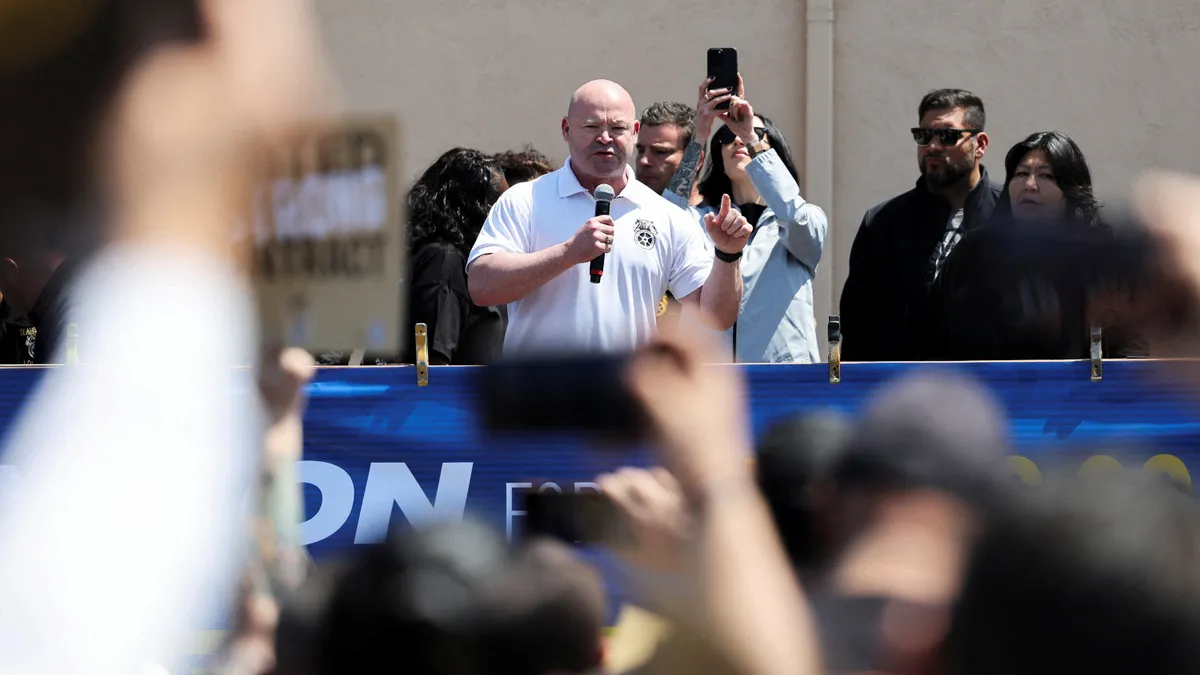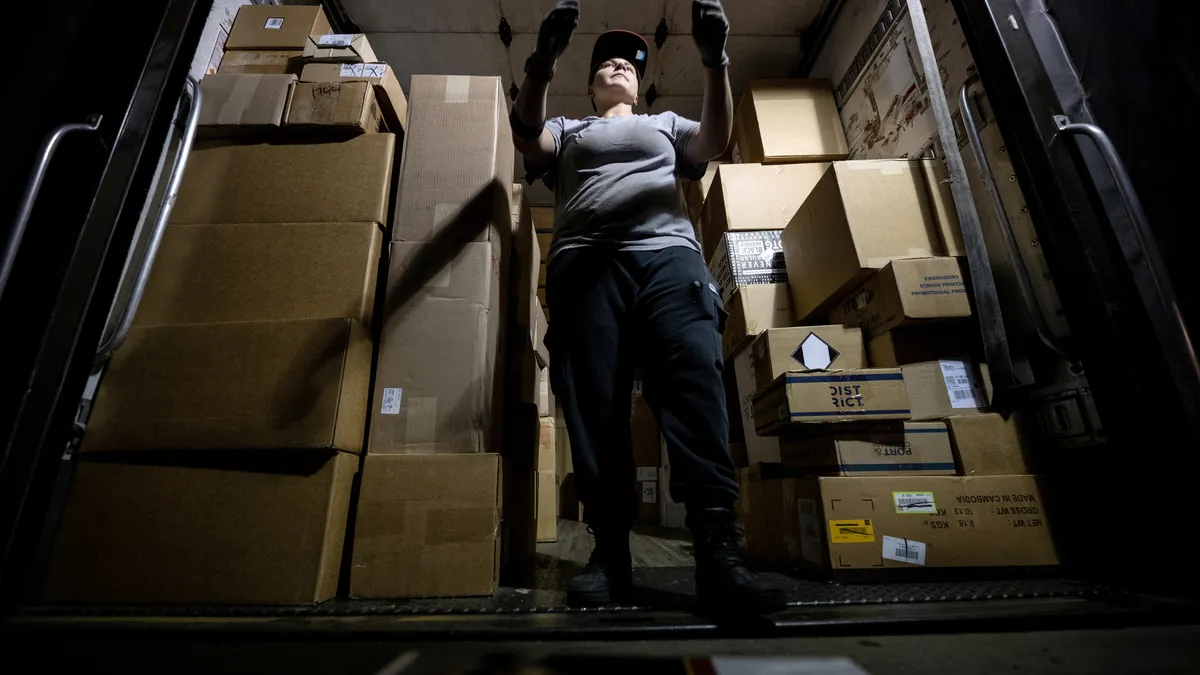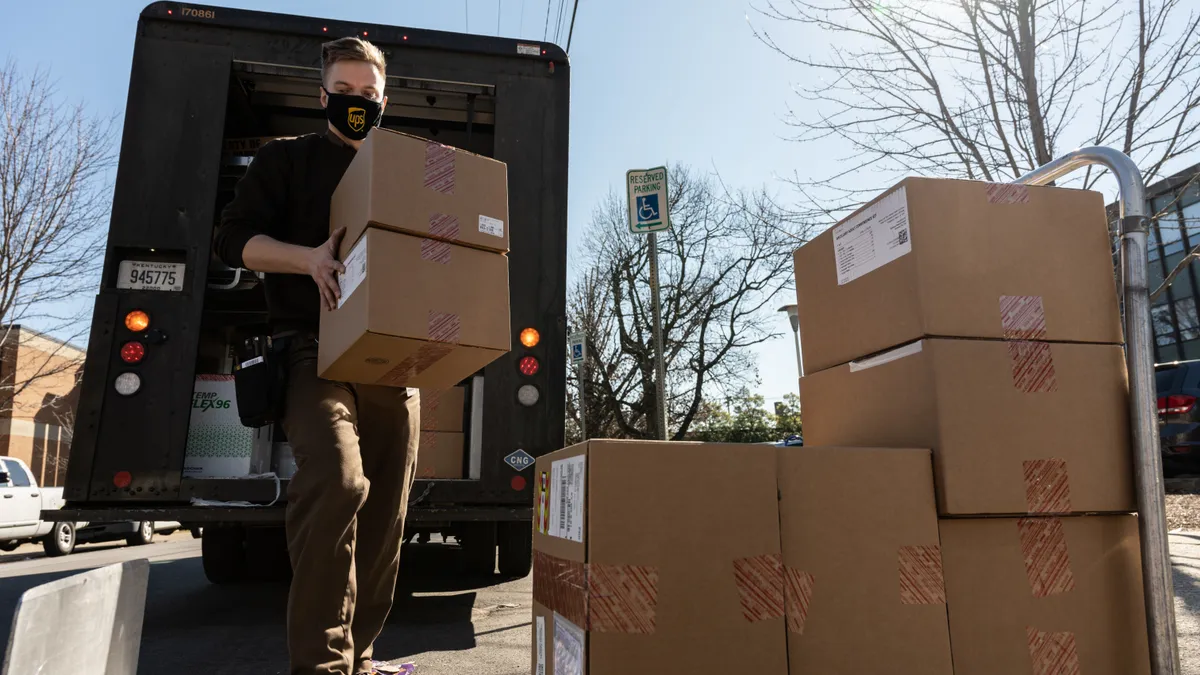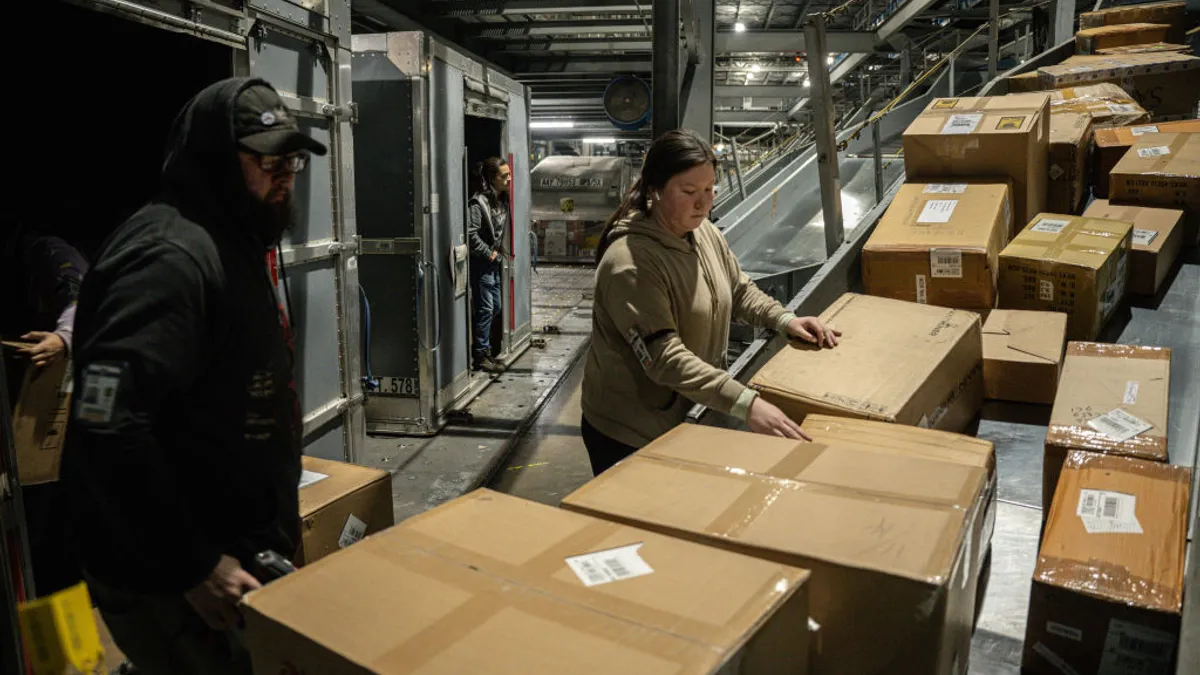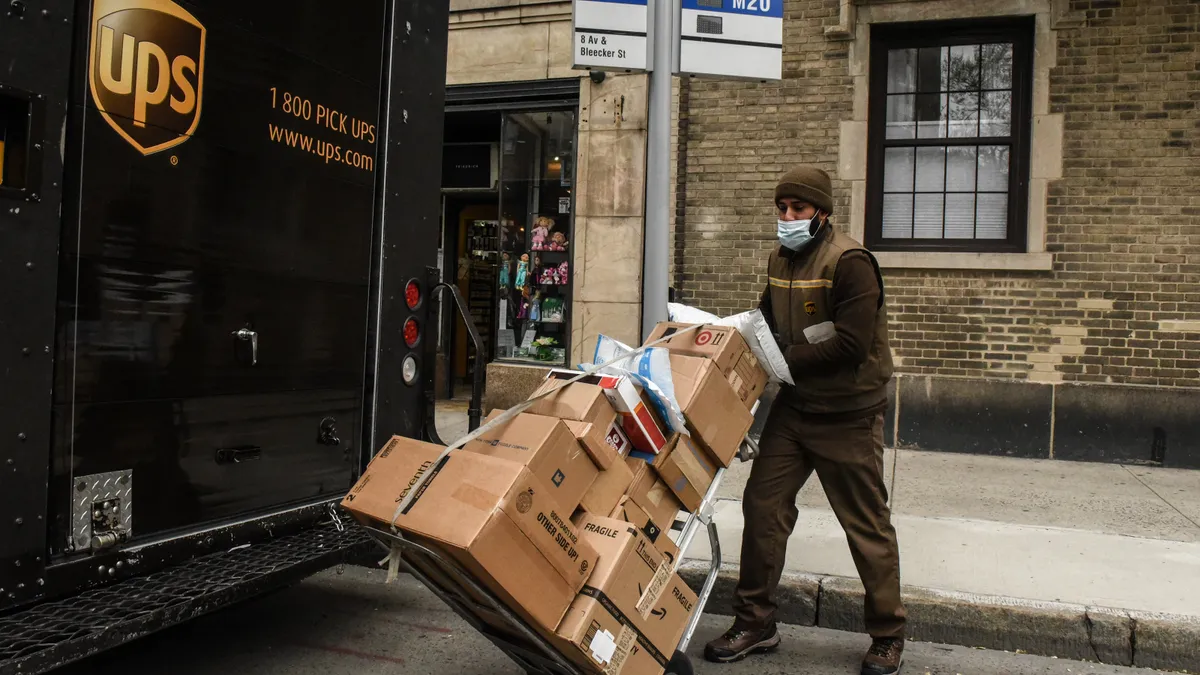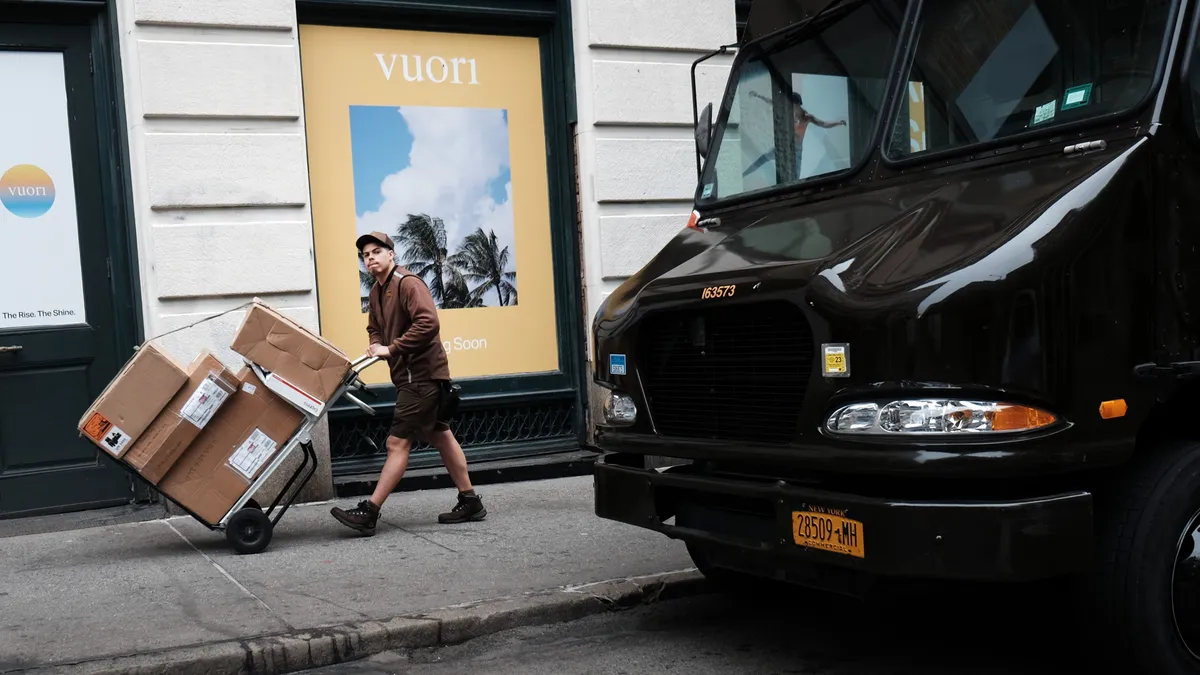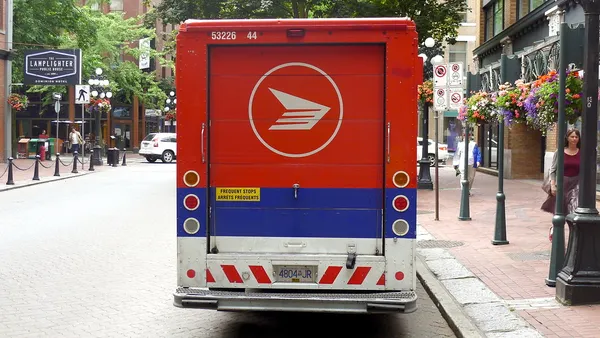Dive Brief:
- More UPS shippers diverted volume to other carriers than the company anticipated in Q2 amid contract negotiations with the International Brotherhood of Teamsters, executives said on an earnings call Tuesday.
- "We estimate the impact of volume diversion, combined with a slowdown in our sales pipeline pull-through, reduced volume in the second quarter by approximately 1.2 million packages per day," CFO Brian Newman said. About 1 million of that amount was tied to volume diversions specifically.
- Volumes declined by nearly 2.2 million daily packages YoY overall for the quarter ending June 30, a 9.4% decrease. CEO Carol Tomé said volumes continued to fall in July. UPS and the Teamsters reached a tentative agreement on July 25.
Dive Insight:
Although some UPS shippers stayed put during negotiations, many scrambled to move their package volumes to other carriers over concerns of a potential Aug. 1 strike that would have disrupted the company's operations.
Where did this diverted volume go? FedEx, the U.S. Postal Service and a mix of regional carriers each took one-third of the diverted volume, Tomé said, citing market share intelligence data. It's now "all hands on deck to win back the volume," the CEO said.
UPS is highlighting its strong service levels, speed advantage over FedEx in several markets and its SurePost product — a lower-cost offering using the Postal Service for final-mile delivery — to regain lost volume, according to Tomé. The company is also expanding its Saturday delivery and weekend pickup services into new areas.
Additionally, UPS has set up a "control tower" to onboard returning volume without disruption, similar to what the company does during the peak holiday shipping season.
"There's a lot of effort underway to bring back business that we lost and to win new business," Tomé said.
The shift won't occur overnight, but Tomé said she thinks UPS will win back all the diverted volume by year’s end. The regular contact that company executives had with customers during negotiations allowed UPS to better understand shippers' supply chains, she added.
UPS employees represented by the Teamsters are voting on the tentative contract agreement this month. Tomé said the deal benefits UPS in part by allowing the company to retain flexibility in adding new technologies to its operations and adding seasonal support roles during the holidays.
The company will provide more details on the financial impact of the agreement to analysts once the contract is ratified, Newman said.



